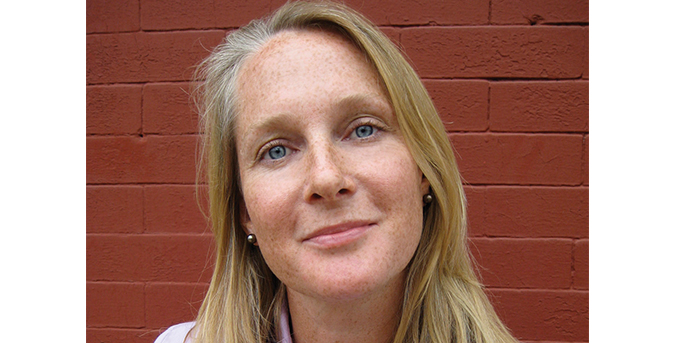When Piper Kerman graduated from Smith College in 1992, she had no idea that one day she would be at the forefront of the prison reform movement. After all, who could imagine that this affluent, well-educated woman would end up serving a 15-month sentence in federal prison for drug related charges? Kerman’s story has been well documented, becoming the centerpiece of both her best-selling book, “Orange Is the New Black,” as well as the outrageously popular Netflix series that bears the same name. We recently spoke with Kerman about her experience, the impact of “OITNB” and why prison reforms matters.
Rehabilitation and Reform
Kerman’s story is unusual both because of her race and socio-economic status as well as her crime. Prior to the mid-‘80s, most non-violent drug offenders were not incarcerated, but instead sent to rehab facilities or given parole and community service. However, things changed drastically when Congress, under pressure to declare a stringent war on drugs, passed laws that created mandated minimum sentencing requirements for drug offenders. What was designed as a way to keep drugs off the street quickly ballooned into a billion-dollar fiasco as low-level, non-violent drug offenders were sent to federal prison to serve sentences alongside drug kingpins, violent criminals and the like. The problem became even more complex because of the disproportionately high number of non-white offenders from impoverished neighborhoods. “In Illinois alone we spend over $1.3 billion annually to incarcerate over 48,000 adults in a system designed to hold just over 32,000 people,” says Jennifer Vollen-Katz, Executive Director of the John Howard Association. “The result of this is terrible living conditions and an inability to provide meaningful programming, like mental health treatment, substance abuse treatment, or job skill training to the men and women in custody.” Vollen-Katz goes on to say that these men and women leave prison worse off then when they entered, with less ability to find housing and get a job—which not only hurts these individuals, it negatively impacts all of us as a community and a society. Thus it’s not surprising that 70 percent of non-violent offenders are rearrested for a new crime within three years of being released.
Why Should We Care?
“I think one of the reasons my story resonates with the general public is because we all can relate,” says Kerman. “We’ve all done something we regret, that we wish we could take back.” For most of us, our mistakes have not been life altering and we have learned to change our ways and move on. For non-violent prisoners, moving on is not always feasible, but it is possible. Rehabilitation programs that include education and job training can help communities thrive. Furthermore, these programs are markedly less expensive than incarceration. According to the Federal Bureau of Prisons, the federal prison population has increased by 800 percent since the mandatory minimum sentencing laws have passed. “Three years ago, we spent $60 billion on federal prisoners, many of whom were non-violent, drug offenders. Wouldn’t it be better to spend less money locking them up and more money on programs that promote public safety, police training and education?”
What Can We Do?
There are many ways to help Kerman and her efforts. For example, you can donate books and educational materials to local prisons. You can contact your local representatives, tell them you want the policies changed and ask them to repeal the mandated minimum sentencing requirements for non-violent, drug offenders. You can donate money to non-profit organizations that are dedicated to prison reform such as Families Against Mandatory Minimums and the John Howard Association of Illinois. Finally, you can be proactive and start helping before there is even a problem by mentoring disadvantaged youth who need consistent, positive role models.
Meet Piper Kerman
Piper Kerman is coming to Chicago. Join the John Howard Association for “An Evening with Piper Kerman,” June 16 at The University Club of Chicago. For more information and details, click here.
Enjoy this article? Read more like it here:

